Electric cookers make meal prep a breeze. With their user-friendly designs, you can whip up everything from stews to rice dishes in no time. Plus, they come packed with handy features like timers and temperature controls to help you cook perfectly every time.
Electric Cookers
Experience convenient cooking with our range of high-quality electric cookers designed to elevate your culinary skills
Product List
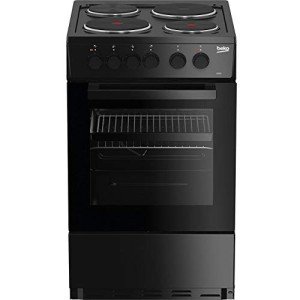
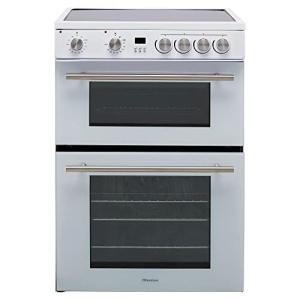
Hisense 60cm Electric Cooker
Hisense
Product Review Score
4.59 out of 5 stars
97 reviews£399.00 £352.00
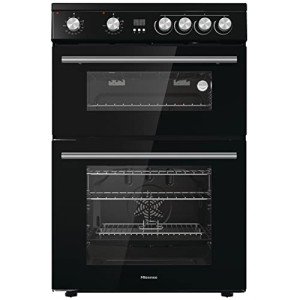
Hisense 60cm Electric Hob
Hisense
Product Review Score
4.15 out of 5 stars
37 reviews£499.00 £349.00
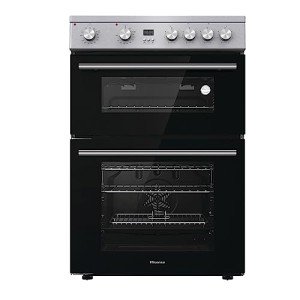
Hisense 60cm Ceramic Cooker
Hisense
Product Review Score
4.47 out of 5 stars
150 reviews£429.00 £369.00
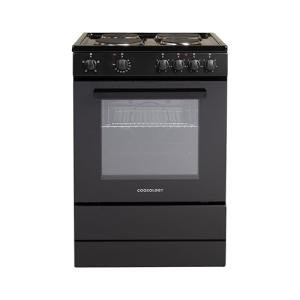
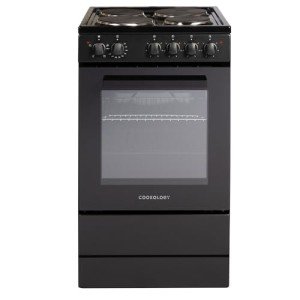
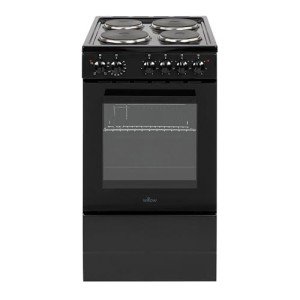
Willow 50cm Electric Stove
Willow
Product Review Score
4.9 out of 5 stars
126 reviews£249.99 £214.99
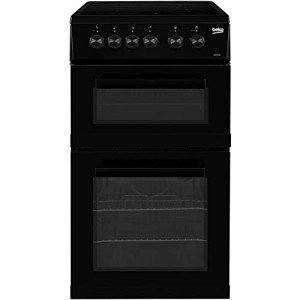
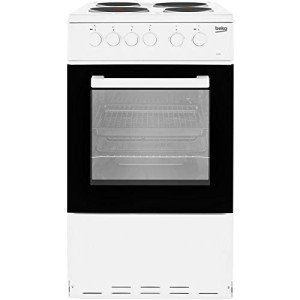
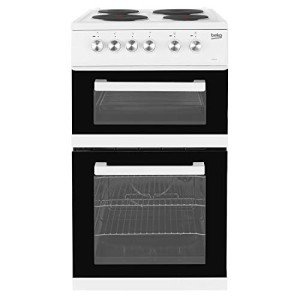
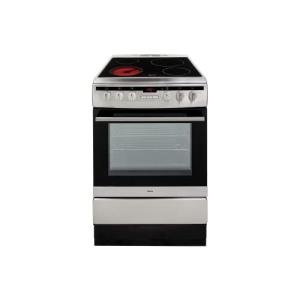
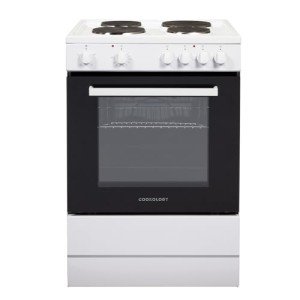
Cookology 60cm Electric Cooker
Cookology
Product Review Score
4.85 out of 5 stars
154 reviews£279.99
Electric Cookers: A Comprehensive Guide for Modern Kitchens
In the contemporary kitchen, efficiency and convenience often dictate the choice of appliances. Among these, electric cookers have increasingly become a preferred option for households across the globe. Whether one is preparing a quick weekday dinner, slow-cooking a hearty stew, or steaming vegetables for a healthy meal, electric cookers provide versatility, ease of use, and energy efficiency.
This guide explores the key features, benefits, types, and best practices for using electric cookers. It will also provide comparisons, FAQs, and helpful tips to make the most out of this essential appliance.
What is an Electric Cooker?
An electric cooker is a kitchen appliance powered entirely by electricity, designed to cook food through a heating element rather than gas. It commonly consists of one or more hobs on the top (used for frying or boiling) and an oven chamber below (used for baking, roasting, or grilling). Unlike gas cookers, electric models provide consistent heat and improved temperature control, making them well-suited to a variety of cooking styles.
Types of Electric Cookers
Electric cookers come in several categories, each offering unique features suitable for different cooking needs:
-
Conventional Electric Cookers
- Equipped with solid plate hobs and a basic oven.
- Affordable and simple to use.
-
Ceramic Electric Cookers
- Feature a sleek, glass-ceramic hob surface.
- Easy to clean and stylish in design.
-
Induction Cookers
- Utilize electromagnetic technology to heat only the cookware, not the hob itself.
- Extremely energy-efficient and safe, but require induction-compatible pots and pans.
-
Double-Oven Electric Cookers
- Provide two separate oven compartments.
- Allow simultaneous cooking at different temperatures.
-
Range Electric Cookers
- Larger models featuring multiple ovens and a wide hob section.
- Ideal for bigger households or avid cooks.
Benefits of Using an Electric Cooker
Electric cookers offer several advantages over traditional gas cookers, making them attractive to many households:
- Even Heat Distribution: Electric ovens usually distribute heat more uniformly.
- Ease of Cleaning: Ceramic or induction hobs are flat surfaces that wipe down easily.
- Safety: Induction cookers, in particular, remain cool to the touch, reducing burn risks.
- Energy Efficiency: Direct heating (especially in induction models) reduces wasted energy.
- Programmable Settings: Many modern electric cookers come with timers, pre-set functions, and safety features.
Electric Cooker Comparison Table
Below is a comparison highlighting the differences between popular types of electric cookers:
| Type of Cooker | Heat Source | Efficiency | Cost Range | Cleaning | Key Advantage | Limitation |
|---|---|---|---|---|---|---|
| Conventional Electric | Solid plates | Moderate | Low to Medium | Moderate | Affordable & reliable | Slower heating time |
| Ceramic Cooker | Electric elements | Moderate | Medium | Easy | Modern design & easy cleaning | Hob surface retains heat after use |
| Induction Cooker | Electromagnetic | High | Medium to High | Very Easy | Fast, safe, and highly efficient | Needs compatible cookware |
| Double-Oven Cooker | Electric | Moderate | Medium to High | Moderate | Multi-tasking with 2 ovens | Takes up more space |
| Range Cooker | Electric | Moderate | High | Varies | Large capacity for heavy cooking | Expensive & space-consuming |
Key Features to Consider Before Buying
When selecting an electric cooker, certain aspects should be carefully evaluated to ensure the best fit:
- Size & Capacity: Measured in liters, oven capacity determines how much food can be cooked at once.
- Number of Hobs: Standard cookers have four zones, while larger ones may have up to six or eight.
- Controls & Settings: Touch controls, digital displays, and programmable timers enhance usability.
- Safety Features: Look for residual heat indicators, child locks, and automatic shut-off options.
- Energy Rating: Choose models with higher ratings for increased efficiency and lower running costs.
Best Practices for Using an Electric Cooker
To maximize efficiency and extend the life of an electric cooker, users should follow some best practices:
- Preheat ovens only when necessary and avoid leaving them on idle.
- Use the right cookware for induction cookers (flat-bottom pans with magnetic bases).
- Avoid dragging pots across ceramic hobs to prevent scratches.
- Clean hobs immediately after spills to avoid stains or residue buildup.
- Utilize residual heat by turning off the hob a few minutes before cooking ends.
Frequently Asked Questions (FAQs)
1. Are electric cookers more expensive to run than gas cookers?
Electric cookers can sometimes be more costly to operate compared to gas models, depending on local energy prices. However, induction cookers are highly efficient, which offsets some operational costs.
2. Can all cookware be used on an induction hob?
No. Induction cookers require cookware with a magnetic base, such as stainless steel or cast iron. Non-magnetic materials like aluminum or copper will not work unless they have an induction-compatible base.
3. Do electric cookers require professional installation?
Yes. Most electric cookers need to be hard-wired into a dedicated electrical circuit by a certified electrician to ensure safety.
4. Are electric cookers safe for households with children?
Yes. Many modern electric cookers include safety features such as cool-touch surfaces, child locks, and automatic shut-off mechanisms, making them safer than traditional gas cookers.
5. How long do electric cookers usually last?
With regular maintenance, an electric cooker can last between 10 to 15 years, depending on the quality of the brand and frequency of use.
Pros and Cons of Electric Cookers
Advantages:
- Simple temperature controls.
- Stylish designs suited for modern kitchens.
- More environmentally friendly if powered by renewable electricity.
- Wide range of sizes and styles available.
Disadvantages:
- Higher upfront purchase cost compared to gas cookers.
- Dependence on electricity (rendered unusable during power outages).
- Some models, like ceramic hobs, may be slower to heat or cool down.
Final Thoughts
As kitchen technology evolves, electric cookers continue to stand out for their versatility, safety, and energy efficiency. From the practicality of conventional models to the sophistication of induction cookers, consumers have a vast array of choices to suit their cooking preferences and household needs.
When weighing options, it is essential to consider kitchen size, cooking style, and budget. For those seeking a balance between safety, performance, and design, electric cookers are an invaluable addition to the modern kitchen.